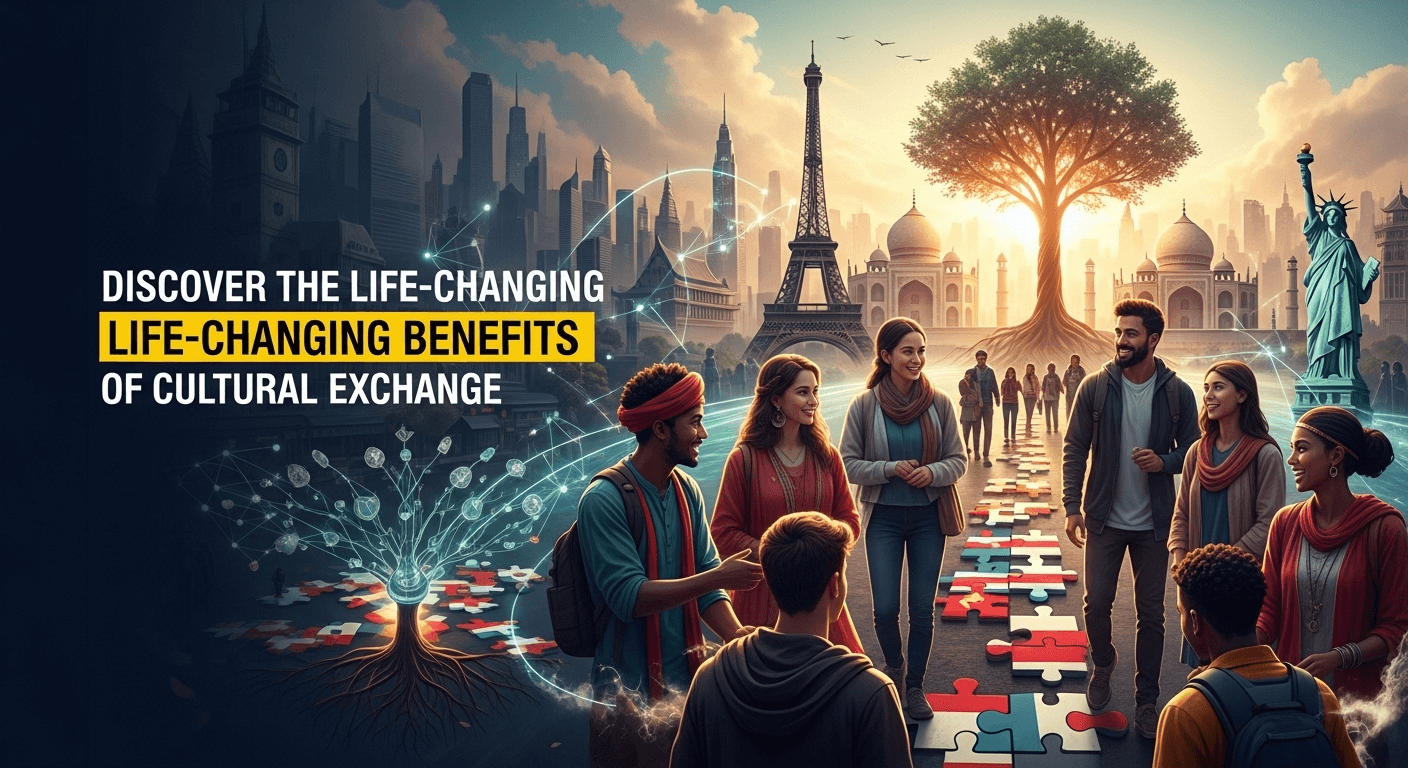In a world that feels simultaneously vast and hyper-connected, the desire to truly understand one another has never been more critical. We scroll through images of distant lands and connect with people across continents via social media, yet often, this digital proximity only scratches the surface of genuine human connection. It's one thing to see a picture of the Eiffel Tower; it's another entirely to navigate the Parisian metro, order a croissant in fumbling French, and share a laugh with a local who helps you find your way. This is the essence of cultural exchange, a transformative journey that goes far beyond simple tourism. It is a deep dive into a new way of life, an experience that challenges your perceptions, builds your character, and reshapes your future. The profound benefits of cultural exchange programs extend into every facet of a participant's life, creating ripples of positive change that last a lifetime. Fostering Unparalleled Personal Growth and Independence One of the most immediate and impactful benefits of participating in a cultural exchange program is the immense personal growth it ignites. When you step out of your comfort zone—the familiar network of family, friends, and social norms—you are forced to rely on yourself in ways you never have before. This journey into the unknown is a powerful catalyst for developing self-awareness, resilience, and a profound sense of independence. The daily act of navigating a new environment, from grocery shopping to making new friends, becomes a series of small victories that build a foundation of unshakeable self-trust. This process isn't always easy. There will be moments of confusion, loneliness, and frustration. Yet, it is precisely in overcoming these challenges that true growth occurs. Learning to be comfortable with being uncomfortable is a superpower in the 21st century. It teaches you to adapt, to think on your feet, and to find solutions when the path isn't clear. This newfound resilience is not something that can be taught in a classroom; it is forged in the real-world laboratory of a new culture, transforming you into a more capable and self-reliant individual. Ultimately, this journey cultivates a deeper understanding of who you are. Stripped of your usual social context, you have the unique opportunity to define yourself on your own terms. You discover your core values, your strengths, and your weaknesses. You learn what truly matters to you when external expectations fade away. This period of introspection and self-discovery is invaluable, providing clarity and purpose that will guide your decisions long after you return home. Building Self-Confidence and Resilience Navigating a foreign country independently is a masterclass in building self-confidence. Every successful interaction, whether it's asking for directions, ordering from a menu, or understanding a local joke, acts as a building block for your self-esteem. You prove to yourself, time and again, that you are capable of handling uncertainty and thriving in an unfamiliar setting. This is not the fleeting confidence of receiving a compliment, but a deep-seated belief in your own abilities, earned through direct experience. Resilience is the other side of that coin. Cultural exchange participants inevitably face hurdles, such as homesickness, language barriers, or cultural misunderstandings. Rather than derailing the experience, these obstacles become crucial learning opportunities. Working through a moment of intense homesickness and realizing you can find joy and connection in your new surroundings builds emotional fortitude. This resilience—the ability to bounce back from adversity—is a critical life skill that will serve you in your personal relationships, academic pursuits, and professional career. Enhancing Adaptability and Problem-Solving Skills Living in a new culture demands constant adaptation. The rhythm of daily life might be different, social etiquette can be subtle and complex, and even simple tasks may require a new approach. By embracing this, you train your brain to be more flexible and open to different ways of doing things. This adaptability moves from a conscious effort to an ingrained habit, making you more versatile and resourceful in all areas of your life. It’s the skill that allows you to pivot when a project at work changes direction or to find common ground with a person from a completely different background. Furthermore, a cultural exchange is a continuous exercise in live problem-solving. A missed train, a lost wallet, or a miscommunication with a host family are not just stressful events; they are real-time puzzles that require critical thinking and creativity to solve. You learn to assess situations quickly, weigh different options, and take decisive action without a familiar support system to lean on. These experiences sharpen your analytical abilities and teach you to remain calm under pressure, turning you into a more effective and pragmatic thinker. Expanding Your Worldview and Fostering Global Citizenship Perhaps the most profound legacy of a cultural exchange is the radical expansion of one's worldview. It’s a process of dismantling the invisible walls of your own cultural bubble and realizing the sheer diversity of human experience. You move beyond the one-dimensional portrayals often seen in media and begin to appreciate the intricate, beautiful complexity of another society. This firsthand experience is the most powerful antidote to stereotypes and prejudice, replacing assumptions with personal relationships and genuine understanding. This newfound perspective fosters a sense of global citizenship. You start to see how global issues like climate change, economic shifts, and public health are interconnected, affecting real people in different ways around the world. Your host country is no longer just a place on a map; it becomes a place filled with people you know and care about. This personal connection to a broader world cultivates a deeper sense of responsibility and a desire to be a positive force for global cooperation and understanding. Empathy is the engine of this transformation. By living day-to-day in another person's world, you learn to see things from their perspective. You understand the historical context behind their traditions, the social pressures that shape their choices, and the hopes they have for the future. This ability to step into someone else's shoes is the





